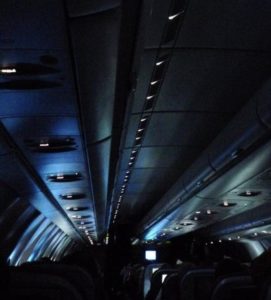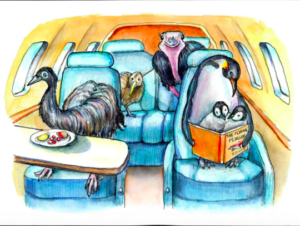Progygm: Comparison
The selfie is often maligned, and for good reason. It is symbolic of a self-centered consumerist culture in which appearances mean more than substance. From the lens of the self-facing camera, what matters about your vacation is the 4K picture in front of the Berlin Wall that you took, posing in your ripped jeans and yellow vans, not anything of substance you could say or portray about your travels.
A selfie is empty, a façade, only showing to your selected group of Instagram followers what you would like them to see about you. The image is framed around you; you are the focus, and the locale is only a backdrop. Cardell and Douglas use the example of Anzac Cove, in which selfies taken center, as per usual, around the individual, but then use the caption to reinterpret the context, connecting it back to the memorial of the Cove.
“These subject choices come together to form a micro story about the author’s journey to Anzac Cove – what elements of this experience are central to her, and what she particularly wants to share with her anticipated readership” (114).
The selfie-taker, wants to portray their life as interesting, as does everyone on social media, and to do so will draw from their surroundings, but connect the importance back to themselves. Their life is likely as normal as anyone else’s: a nine-to-five job, bills to pay, a pet or two, but they don’t wish to show this, because this is not attractive, not interesting. The selfie-taker is not a bad person, as Cardell and Douglas say throughout their article, but simply uninformed or a little short-sighted.
De Botton, in The Art of Travel, envisions a mode of travel far different from the selfie-taker. He believes that to see the world as a traveler through the lens of a camera, wanting to capture it artificially, is an empty and poor way to approach tourism. Instead, in one scene he goes so far as to collect the cameras of a Japanese tour group and gives them drawing supplies instead. To study and interpret your surroundings is to better understand and appreciate them, with no lens, no filter. In contrast to the selfie-taker, one who approaches the tourist gaze in such a way will appreciate and learn more from their travels and is more conscious in doing so. Such self-awareness is necessary for respectful travel, and only people who actively consider the ways in which they travel will be able to do so.
Cardell and Douglas do provide some complexity to the analysis of selfies.
“The contemporary traveler and travel documenter seek to interact with their experience and to create and share an individual presentation of the encounter to an audience,” they write (114).
However, the selfie is still often on the borderline of being disrespectful or self-aggrandizing. A person who, as in de Botton’s view, is self-aware and observant, does not need to tread this fine line. A selfie, even if taken in good taste and with the intent of being respectful, is still likely to be viewed negatively, as a literally self-centered view of travel.

